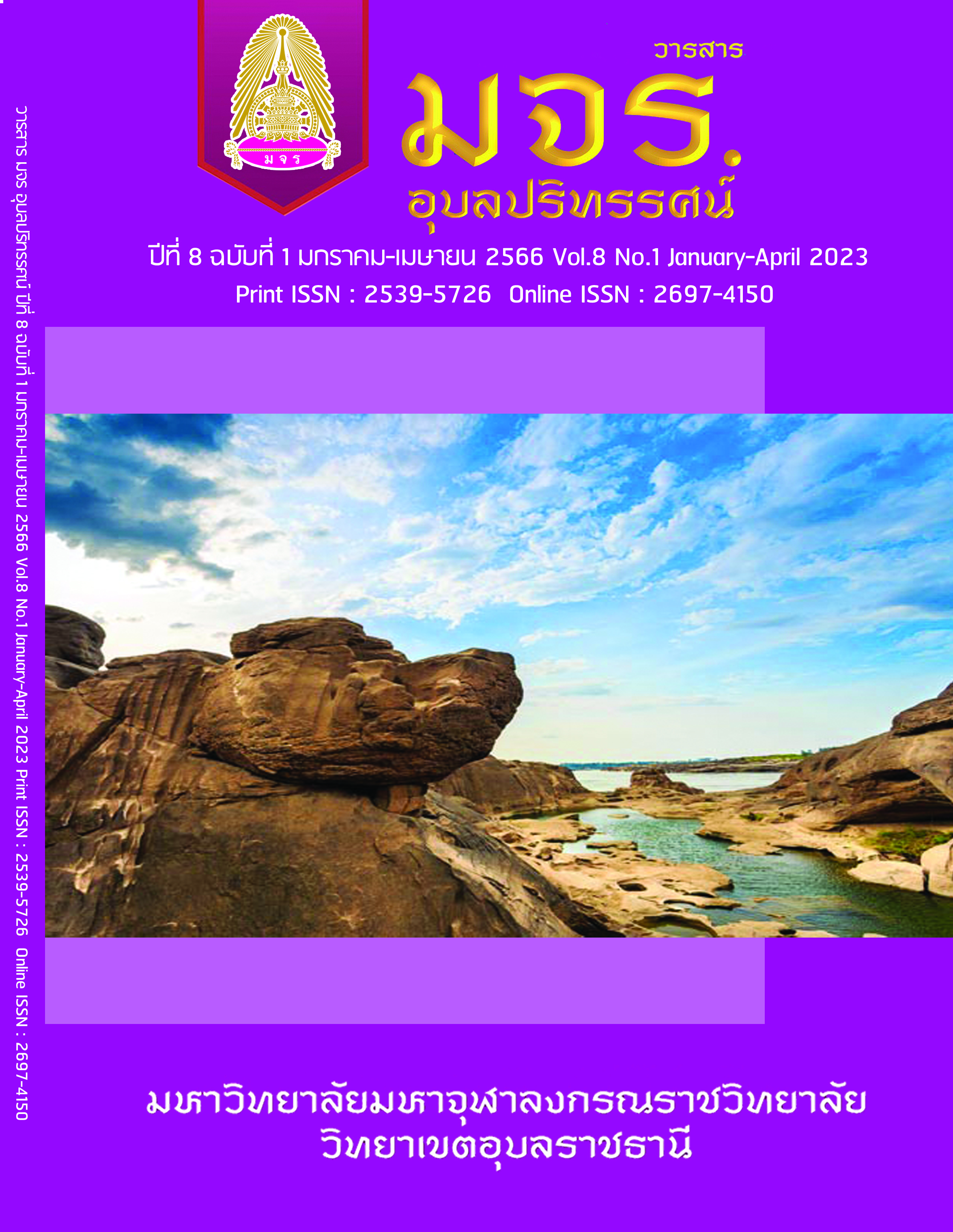The empiricism and belief of gods
Main Article Content
Abstract
This article has 3 objectives: 1. To analyze the popular belief in angels in theism. 2. An analytical study of the empirical beliefs on the ethics of angels towards theism. 3. Analyze the popular belief in the deity that influences pluralistic society by studying the Chakradeepani scriptures, Buddhism, philosophy, religion, and St. Thomas Aquinas.
The word angel comes from the old term that playing, worshiping Abhidhanapadi Pikasuji. Analyze the meaning of the word Deva or Devada as follows: "Dippanti Kibphanti Vuddha Gacchanti Loka Anenati Devo: The name Deva is deva or deva because of the meaning of playing, having fun, and having fun. to prosperity from this world."
Malabari Elemental Sattani Mahagrammar He has expressed the meaning of the deva as: Dibbana Khamkun Janaphinya Chittissariyadihi Kelananti: One who enjoys sensual pleasure, Jhana Apinya, and greatness in the mind. Babbanti yathaphilasit visaya appatighaten gacchanatiti deva : In other words, one goes to the desired state without hindrance, called the devas, said dhippanti yathicchit-. Nippadaen sakkontiti deva : In other words, one who is capable of accomplishing what he wants to achieve is called deva, athavata pyasanittharantthikehi sarana. Prayananti Devaniya Apitthavaniyati Deva : In other words, one who should be regarded as the refuge of one who wishes to be freed from that calamity is called Deva Sobhavisesyoken Kamani. Yativa Deva : In other words, one who is endowed with special beauty is desirable, called Deva.
Article Details
References
กรมวิชาการ, (2511) สํสกฤต-ไทย-อังกฤษ อภิธาน, (พระนคร : คุรุสภา)
ต.นาคะประทีป, (2467) บาลี อภิธานปฺปทีกาและสูจิ, (กรุงเทพมหานคร : โรงพิมพ์ไท)
พระอัคควังสเถระ, (2545) สัททนีติธาตุมาลา คัมภีร์หลักบาลีไวยากรณ์, (กรุงเทพมหานคร : ไทยรายวันการพิมพ์)
พจนานุกรม, (2546) ฉบับราชบัณฑิตยสถาน พ.ศ. 2542 พิมพ์ครั้งที่ 1, (กรุงเทพมหานคร : บริษัทนามีบุ๊คพับเคชั่น จำกัด)
พระธรรมปิฎก(ป.อ. ปยุตฺโต), (2523) พจนานุกรมพุทธศาสตร์ ฉบับประมวลธรรม, พิมพ์ครั้งที่ 9, (กรุงเทพมหานคร : โรงพิมพ์มหาจุฬาลงกรณราชวิทยาลัย)
ฟื้น ดอกบัว, (2532) ปวงปรัชญากรีก, (กรุงเทพมหานคร : สำนักพิมพ์โอเดียนสโตร์)
พระธรรมปิฏก(ป.อ. ปยุตฺโต), (2546) เรื่องเหนือสามัญวิสัย : อิทธิปาฏิหาริย์-เทวดา,(กรุงเทพมหานคร : โรงพิมพ์สุวรรณภูมิ)
เสถียรพงษ์ วรรณปก, (2535) พุทธศาสนา : ทัศนะและวิจารณ์, (กรุงเทพมหานคร : ช่อมะไฟ)
พระราชวรมุณี(ปยุตฺโต), (2518) พจนานุกรมพุทศาสตร์ ฉบับประมวลธรรม, พิมพ์ครั้งที่ 4, (กรุงเทพมหานคร : โรงพิมพ์มหาจุฬาลงกรณราชวิทยาลัย)
พระพรหมโมลี (วิลาศ ญาณวโร ป.ธ.9 ), (2555) โลกทีปนี, (กรุงเทพมหานคร :
สำนักพิมพ์ดอกหญ้า,).
พระมหาสมจินต์ สมฺมาปญฺโญ (วันจันทร์), (2534) นรกและสวรรค์ในพระพุทธศาสนา, วิทยานิพนธ์พุทธศาสตรมหาบัณฑิต, (บัณฑิตวิทยาลัย มหาวิทยาลัยมหาจุฬาลงกรณราชวิทยาลัย,).
ที.ปา.(ไทย)11/275-286/218-232.
ที.ปา.(ไทย)11/276/218-220.
D.Hume, An Enquiry Cancerning Human Understanding, La Salle, 111, Open Coutt Publishing Co, 1935, Section 18, part 8.


